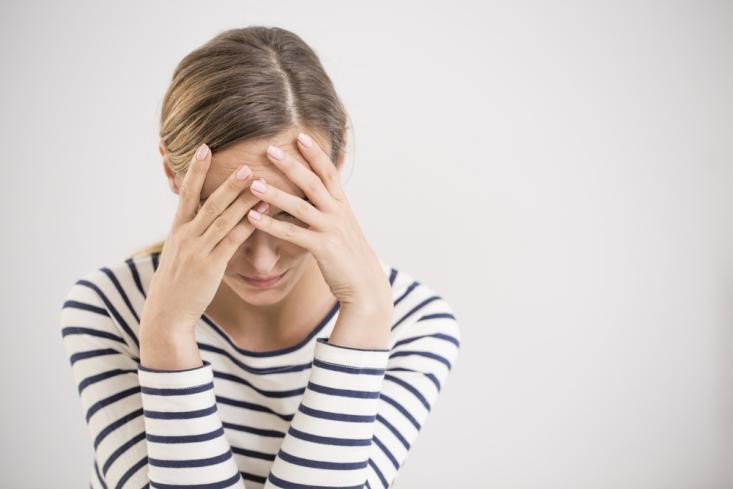5 Essential Tips to Overcome Anxiety and Depression | Guest Post by Stuart Gomez

Feelings of anxiety and depression can strike at any time, affecting both our mental and physical health and our relationships with those around us. However, with the five tips below, we’ll show you how to manage anxiety so that rather than being overwhelmed by negative thoughts and periods of stress, you can control and restore your balance.
- Social Network
Sometimes the last thing you want to do when under a wave of depression is reaching out to others. The bed (specifically under the covers) seems to be the most appealing place to be, but having a good support network of friends and family will provide a strong foundation in helping you get through those tough times. Just knowing that the support is out there, it can help you cope with stressful periods and build up the inner strength to persevere. Moreover, your social network can encourage healthy choices and behaviors as well as improve the motivation to act upon them. If you are struggling to build a strong network, try to find local community groups and depression support meetings in your area as these groups could be your support system.[i]
- Well-Balanced Diet
A healthy diet plan plays a significant role in both physical and mental health, as well as helping to overcome periods of anxiety. If you are a heavy coffee drinker, perhaps think about reducing your intake of caffeine as it can reduce the risk of panic attacks. Also, complex carbohydrates (found in more whole foods rather than processed) keep your blood sugar levels normal, resulting in less volatile mood swings.[ii] Eating well has countless positive effects and introducing the proper nutrients into your diet can help lower anxiety levels such as:
-
Vitamin C – lowers the levels of cortisol (the stress hormone), and reduces blood pressure during anxiety-inducing circumstances.
-
Complex Carbohydrates – increase production of serotonin (the “happy” chemical)
-
Magnesium – helps reduce headaches and fatigue, and improves sleep levels
-
Omega-3 Fatty Acids – reduce floods of stress hormones and can protect against depression
Examples: oranges and fruits (Vitamin C), whole grains and fibers (complex carbohydrates), soybeans, salmon and leafy greens (magnesium) and nuts and seeds (omega-3 fatty acids).
- Adequate Sleep
A good sleeping pattern can keep your mental health balanced, and getting enough sleep can lessen the effects of a depressive episode. On the opposite side of the sleep-spectrum, inadequate sleep increases stress and contributes to depression. A common symptom of stress is restlessness, but if you can focus on building your sleep, stress levels will reduce. Cortisol, the stress hormone that raises the heart rate and stimulates alertness falls at night, leaves you with lowered blood pressure and levels of stress in your body and mind. Furthermore, sleep is when your body gets to recover physically and mentally from whatever it’s been through in the day. The Deep Sleep phase of your sleep cycle promotes physical recovery, while REM sleep boosts mental wellbeing.
An improved sleep cycle helps lower your resting heart rate and induce physical and mental healing, resulting in lower stress levels the next day. If you’re having trouble falling asleep, set a strict bedtime routine where you prepare to sleep one hour before your intended bedtime. Close your laptop, put away your phone, and begin the wind-down process. Keep it consistent and your body will soon learn to adjust to this routine, making it easier to get some valuable shut-eye.
- Exercise
Exercise and other physical activities might feel rough and tough at the moment but have been shown to relieve mental stress in the long term. Research reveals that exercise and other forms of physical activity reduce the levels of stress hormones like adrenaline and cortisol.
These activities encourage the body to produce endorphins, chemicals that are natural painkillers and elevate your mood. Going for a run or getting a spar in the boxing ring, for instance, is a great way to dissipate stress. The subsequent sense of accomplishment and feeling of becoming fitter creates a sense of self-confidence and control of your situation. The Anxiety and Depression Association of America asserts that one of the benefits of exercise is its contribution to the treatment of anxiety disorders. Even just five minutes of exercise can increase blood flow and heart rate, causing the body to produce chemicals that cut stress and lessen anxiety.
- Listening to Music
Studies have shown that music is a great way to soothe thoughts of anxiety and reduce pain felt both physically and mentally. Research suggests that listening to music you enjoy opens up sensory pathways in the brain that might otherwise be used up by negative thoughts or difficult emotional responses.
Activating these alternate pathways should, to a certain extent, distract you from feelings of stress since taking away your focus with this emotional engagement should help reduce anxiety.[1]
Conclusion
The advantage of the tips above is that you can introduce these things into your daily routine without any significant changes to your lifestyle. Indeed, managing periods of stress and anxiety without turning to medication first is always the best place to start.
In addition to the above tips, you can introduce certain natural supplements to your diet to help cope with depressive episodes. Feelings of anxiety can make us feel like life is chaotic and without order. Provasil is a supplement that may help order your thoughts. Containing only natural ingredients, Vitamin B12, and folic acid, this supplement boosts brainpower and provides you with some much needed inner calm.
References:
https://www.verywellmind.com/social-support-for-psychological-health-4119970
https://www.health.harvard.edu/blog/nutritional-strategies-to-ease-anxiety-201604139441
https://psychcentral.com/news/2018/12/23/music-soothes-anxiety-reduces-pain/32952.html
